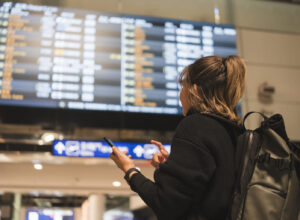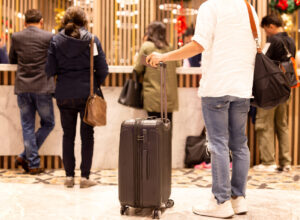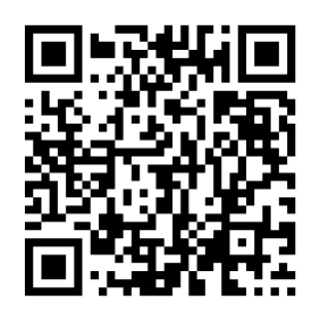Traditional paper tickets are inconvenient to carry around, and the risk of misplacing or damaging them is ever-present. Furthermore, the barcodes on them frequently pose problems to traditional dedicated barcode scanners.
Fortunately, mobile barcode scanning has emerged as a practical solution, streamlining entry at various social events.
Solving common ticketing challenges with digital barcode tickets
Consider the issues of traditional ticketing: Paper tickets can be lost, forgotten at home, or damaged in a way that makes them impossible to scan or read with traditional barcode scanners.
Digital barcode tickets solve these common event entry challenges by enabling attendees to store their tickets digitally on their smartphones. This option eliminates the need for paper tickets and ensures a more convenient entry process.
Why consider mobile barcode ticket scanning for your event?
Efficient event management is the foundation for any successful gathering. With mobile barcode scanning, event organizers can streamline check-in processes, allowing them to concentrate on creating a smooth and safe event experience for admitted attendees once they’re inside.
Mobile barcode scanning is fast, reliable, and cost-effective
Thanks to their advanced image-processing capabilities, mobile barcode scanners easily handle challenges that traditional scanners struggle with, such as scanning tiny and damaged barcodes in low lighting.
Their powerful barcode detection capabilities are based on machine-learning algorithms, enabling high-speed barcode scanning. Some solutions deliver a scanning performance of 26 barcodes per second.
Furthermore, some mobile barcode scanner solutions have advanced features, such as batch scanning, that enable them to scan many barcodes in a row, streamlining event entry even further.
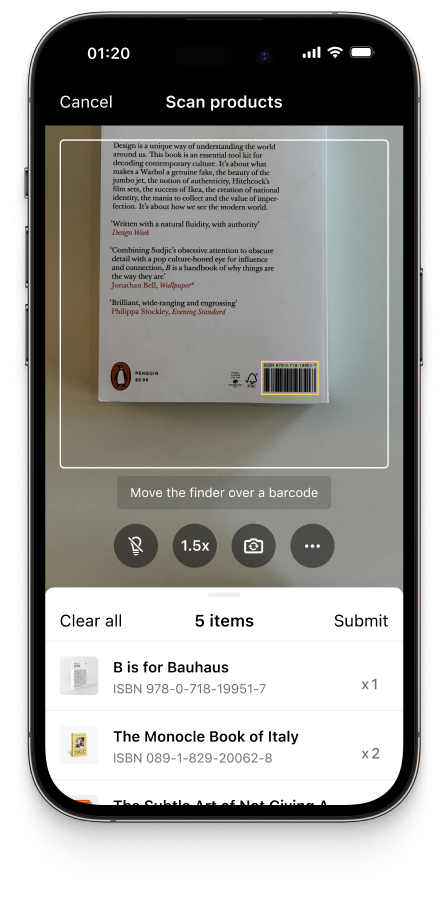
Run events smoothly with mobile barcode ticket systems
Mobile barcode ticketing improves both event safety and attendee satisfaction. Let’s now dig deeper into five aspects of how mobile barcode scanning facilitates event management.
Reduced waiting times
Imagine attendees breezing through the entrance thanks to accurate and lightning-fast barcode scanning. This ensures a positive first impression – one that can set the tone for the entire event. Attendees will appreciate the speed and convenience, leaving them with more time to immerse themselves in the main experience.
Another positive impact of this is that queues can be kept short. This prevents overcrowding and reduces the risk of dangerous crowd surges, contributing to overall event safety.
User-friendliness and ease of use
Mobile apps have enabled new ways to optimize event management. Attendees can easily download an event app with features like personalized schedules, interactive maps, and real-time updates. Integrating barcode tickets into such an app ensures a seamless and user-friendly experience for organizers and attendees.
Likewise, event staff can simply use ordinary smartphones to scan these barcode tickets. Since chances are good that they are familiar with smart devices, training needs are minimal.
For outdoor events, consider providing ruggedized devices that can withstand harsh environmental influences, such as heat and rain.
Offline functionality
Events, such as concerts, bring together large crowds, resulting in thousands of devices trying to connect to the internet simultaneously.
For this reason, some modern barcode scanner software uses on-device processing, based on highly optimized machine learning models running locally on the smart devices themselves. This allows them to function independently from network connectivity and ensures uninterrupted ticket validation.
Data privacy is also a concern when selecting barcode scanner software, as tickets often include personal information. An offline barcode scanner solution can address this, too, by simply never connecting to third-party servers. This ensures GDPR and CCPA compliance, and protects the sensitive personal data present on tickets.
Seamless integration with event systems
Mobile barcode ticket scanning software can be easily integrated into event planning apps. Like this, event planning staff can use the same app for ticket checking as they do for other operations, such as communication or event ground planning.
Scalability
At the same time, mobile or web apps with integrated barcode scanning functionality can be downloaded on any smartphone or tablet. Should queues become too long, employees can fill in quickly to speed up entry.
Which barcode to use for ticketing
Choosing the right barcode symbology for event ticketing requires careful consideration of various factors such as readability, security, and compatibility with existing systems. Let’s explore the pros and cons of three commonly used barcode symbologies: QR Code, PDF417, and Code 128.
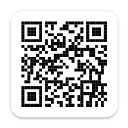
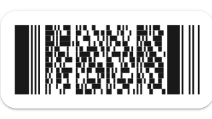
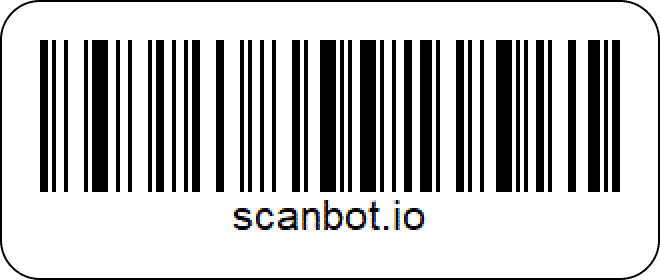
| QR Code | PDF417 | Code 128 | |
| Data capacity | High | High | Limited; stores basic ticket data only |
| Error correction | yes | yes | no |
| Customization | Can be customized with colors and partially overlaid with imagery, e.g., logos | Limited options; size and structure can be customized | Limited options for visual customization |
| Size requirements | Small for most uses | Larger minimum size than QR, suitable for larger data sizes | Compact for short data |
| Use cases | Event tickets, mobile passes | Secure tickets, boarding passes | Simple tickets, legacy systems |
To pick out the key characteristics: QR codes offer high data capacity and versatility, PDF417 provides robust error correction capabilities, and Code 128 offers reliability and compatibility advantages.
Event organizers should carefully evaluate their specific requirements and consider the pros and cons of each symbology before making their decision.
Which barcode scanner software to use for ticket scanning
The next step is to find suitable barcode scanner software.
We believe that extensive testing is paramount to finding the best solution. That’s why you can experience the Scanbot Barcode Scanner SDK for yourself – try our free barcode scanner demo apps!
The SDK scans all common 1D and 2D barcodes in 0.04 seconds – even in poor lighting and less-than-ideal conditions. This keeps queues short, reduces waiting times, and eliminates the need for manual data entry.
The SDK’s fixed-price model – a flat annual fee, without any usage tracking – makes it highly scalable. Included in this are features such as batch scanning and comprehensive user guidance for easy, streamlined ticket scanning.Do you have any questions? Message us at sdk@scanbot.io, and we will be happy to discuss your use case!
FAQ
What are the advantages of using QR codes for event tickets over other barcode types?
QR codes store more data and can be scanned from any angle, making them faster and more versatile for ticket validation compared to traditional 1D barcodes. They also provide additional security features and are more resistant to damage.
Are there any compatibility issues with scanning tickets from different devices or operating systems?
Most modern scanners and mobile devices are compatible with standard QR codes and barcodes, but compatibility issues may arise with outdated systems or apps. Ensuring software is up-to-date can help mitigate this.
How secure are barcode ticket systems compared to traditional paper tickets?
Barcode ticket systems are more secure as they are difficult to replicate and can include encryption features, reducing the risk of counterfeit tickets. Digital verification at entry points also ensures better tracking and fraud prevention.


